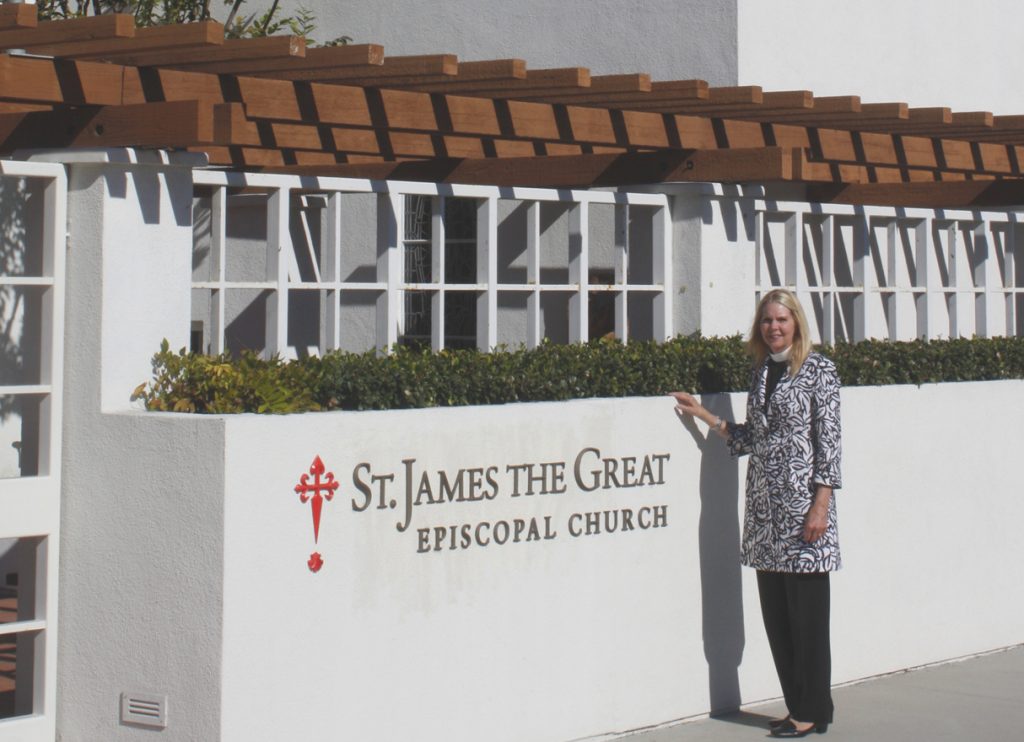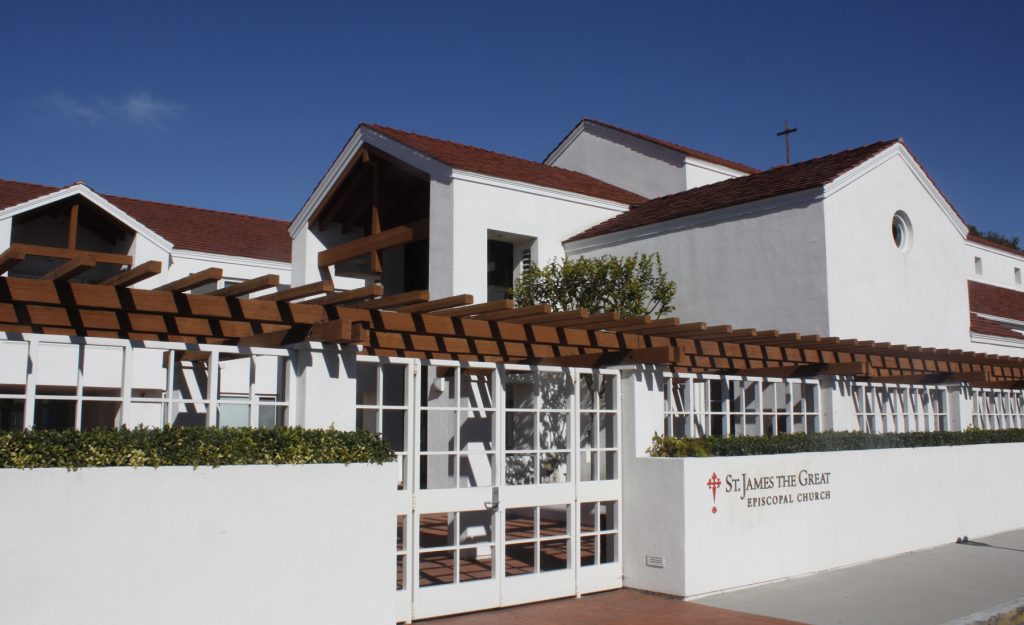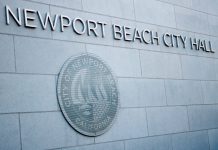
— NB Indy file photo by Christopher Trela ©
A historically hot topic in Newport Beach has returned almost exactly two years after it began: The saga of St. James the Great Episcopal Church.
The issue landed on the City Council’s desk Tuesday night during public comment on non-agenda items.
“Everybody’s still worried that that property is on the chopping block,” parishioner Ann Parker told the council.
Although the latest attempt by a Los Angeles bishop to sell the church property has been thwarted, there are still reasons for concern, she said.
Parker reminded them that council supported the church two years ago, as have a number of the current council members. It’s an important piece of the community and needs to remain as a church, she pleaded.
St James, located at Via Lido and 32nd Street on the Balboa Peninsula, has been a local Episcopal church since the early 1940s.
In 2015, Los Angeles Diocesan Bishop J. Jon Bruno attempted to sell the property to Legacy Partners for $15 million. The deal eventually fell through. Bruno evicted the church members and locked them out of the Lido parish in early July. They continue to meet in other locations around town.
Regarding his conduct in the attempt to sale the church property, charges were brought against Bruno. An ecclesiastical trial was held in March in Pasadena. The hearing was investigating allegations against Bruno concerning conduct involving dishonest, fraud, deceit or misrepresentation, conduct unbecoming a member of the clergy, and failure to exercise his ministry in accordance with the Constitution and Canons of the Church.
No decision has been made and the merits of the alleged offenses are still under consideration by the hearing panel.
The hearing panel imposed a sanction upon Bruno, restricting him – acting individually or in any capacity – from “selling or conveying or contracting to sell or convey the St. James property until further order of the hearing panel.”

— NB Indy file photo by Christopher Trela ©
On June 23, Bruno appealed the sanction and argued that the order was outside the jurisdiction of the hearing panel. In his appeal he also noted that the panel did not give him “reasonable notice or a right to be heard” regarding the sanction, and that the facts did not support the finding.
It was later revealed that Bruno entered a contract of sale with Newport Beach-based developer Burnham Ward Properties, LLC, on April 19 (it was scheduled to close on July 3).
Officials at Burnham Ward could not comment on the matter because of a Non-Disclosure Agreement.
On June 28, the Most Rev. Michael Curry (the presiding bishop for the U.S. Episcopal Church) prohibited Bruno from completing the secretly planned sale of the church. Curry said he was “deeply concerned” about the act.
Parker commented to the council on Tuesday that the bishop is “crooked” and she doesn’t trust any developer who would do business with him.
The latest development in the saga involves the Episcopal Church’s disciplinary board upholding the hearing panel’s sanction on Bruno, preventing him from selling or transferring the St. James property.
“By contracting to sell the St. James property while the conflicts involving that property were still under review and consideration by the hearing panel, respondent [Bruno] disrupted and interfered with the integrity of the process of the Title IV proceeding,” Rt. Rev. Catherine M. Waynick, president of the Disciplinary Board for Bishops, wrote in the order. “[Bruno’s] actions undermined what the canons intend to be a process of reconciliation.”
Bruno’s appeal was denied and dismissed.
“We are honored and joyful that so many have stepped up to protect and preserve our magnificent sanctuary and pray for the day that her doors reopen for worship,” St. James officials wrote on social media.
Parker also spoke to council on June 27 and expressed her concern for St. James and opposition to re-zoning the property, which she called a “huge mistake.”
“Please consider this church and do not let it go to the developers,” she said Tuesday.
Parker mentioned a number of “vulnerable” properties that the city might consider “under-producing, tax-wise,” including churches, and that “developers” – in the general sense – were aiming to build upon.
“Is this what we want to be? I say ‘No,’ we should be preserving,” these properties, she said. “They are part of the very fabric of our community.”




